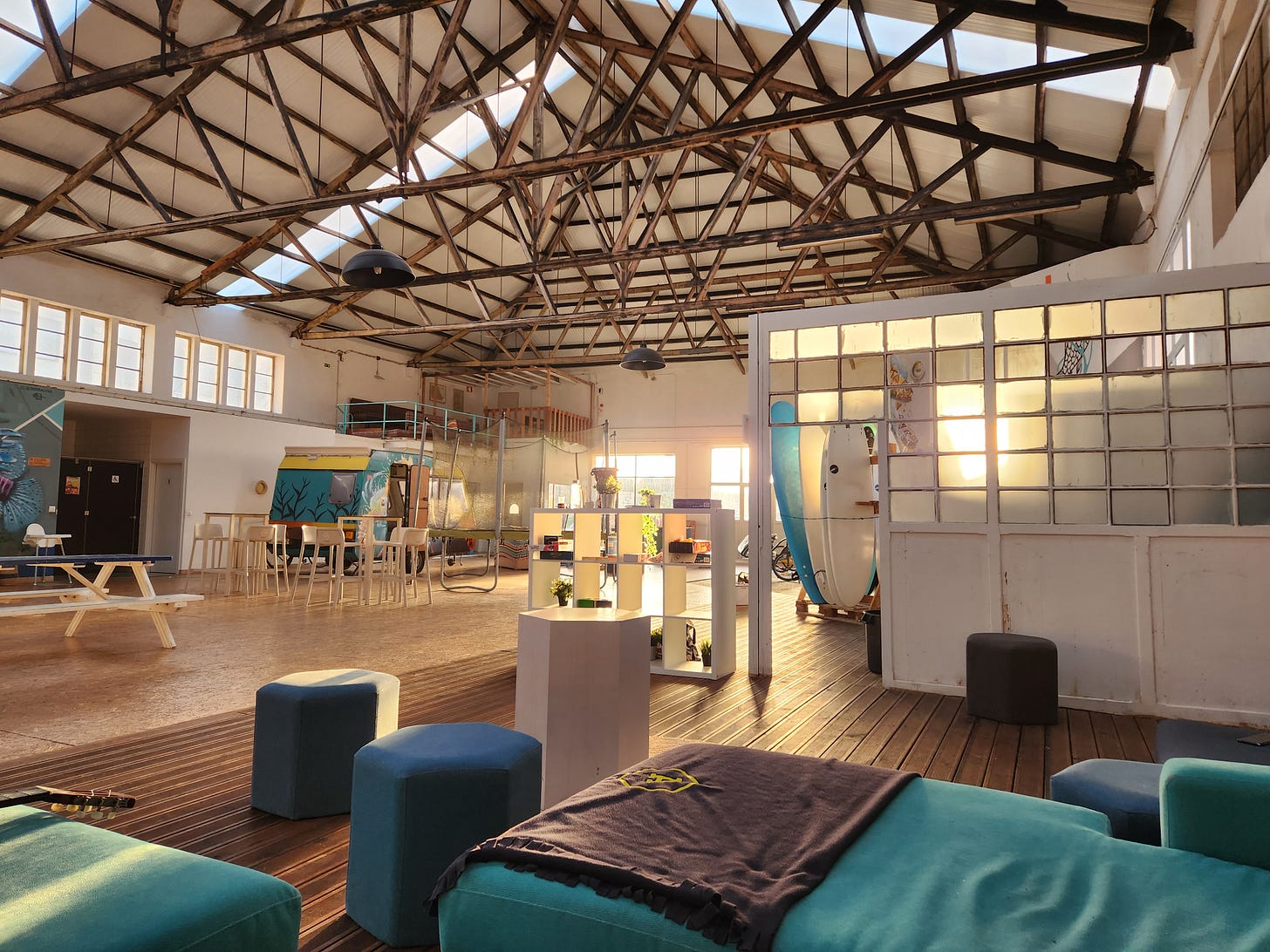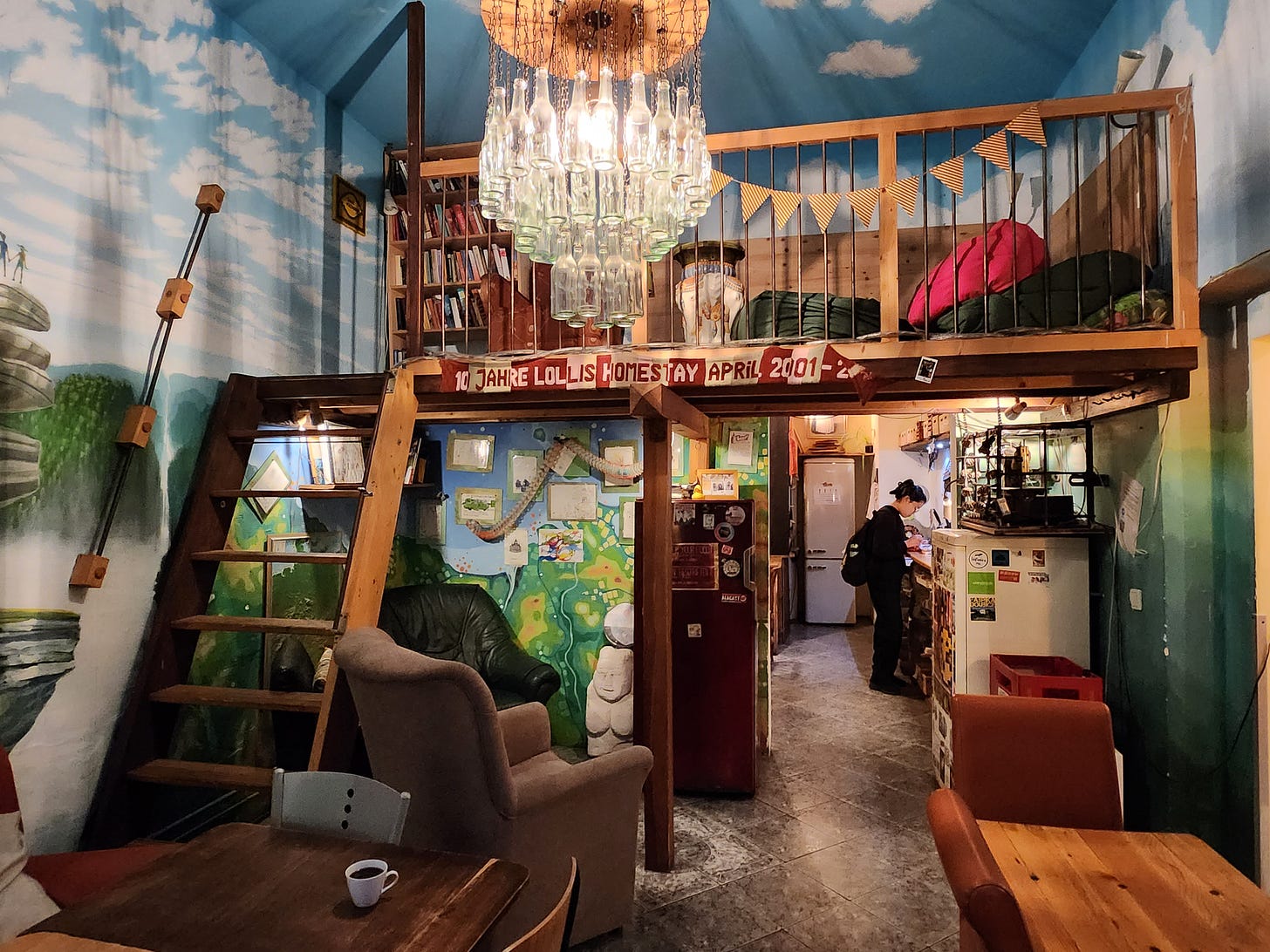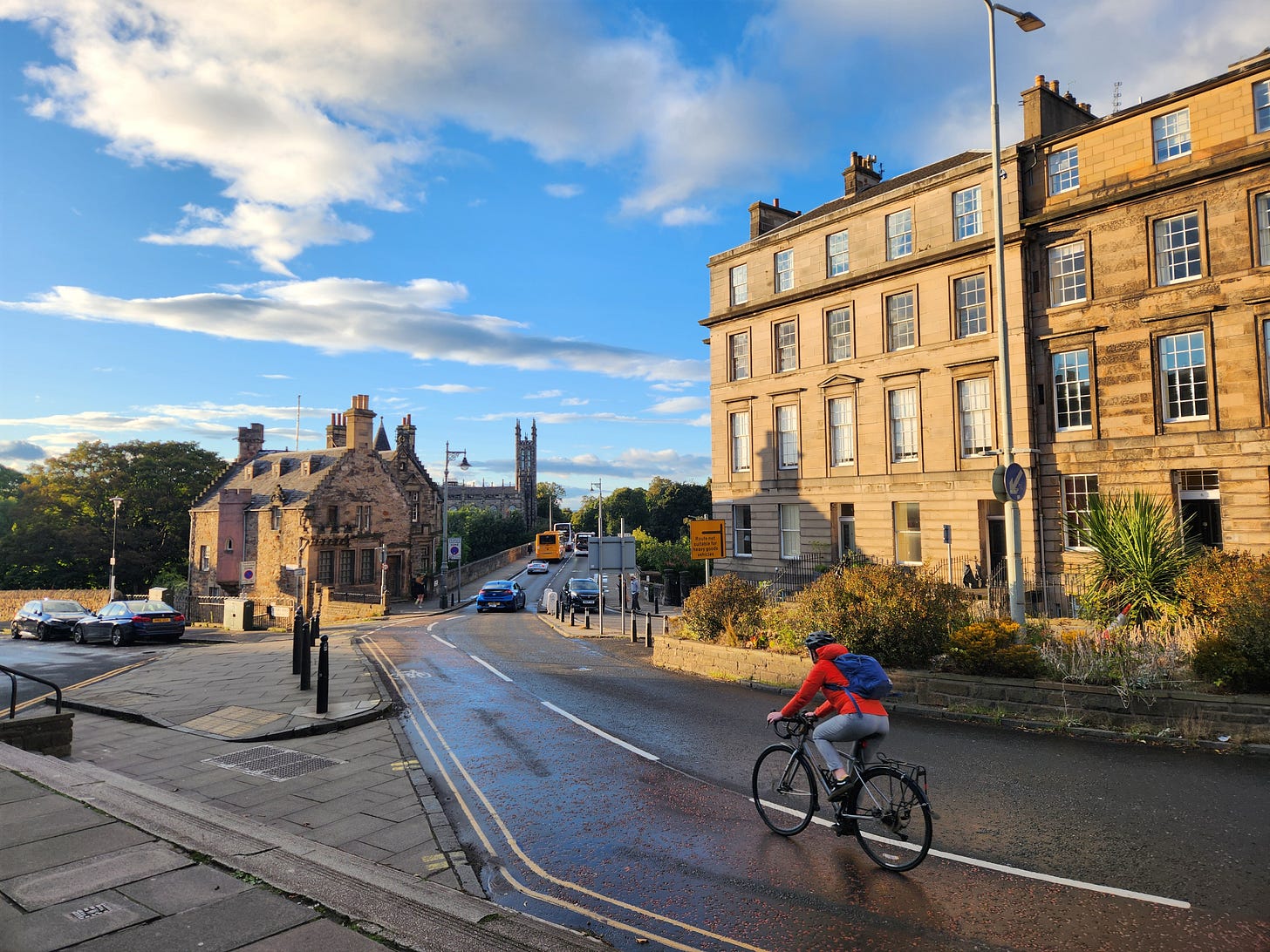Why I love hostels & why they're misunderstood
Surprises, fast friends & disrupted sleep
The first city I visited regularly with my college friends was Asheville, North Carolina. Less than two hours away from our campus in Knoxville, a windy and beautiful drive through the Blue Ridge Mountains would drop us into the heart of a city that supported live music as much as our home did.
Two cities, two music scenes, separated only by the mountains we both loved to explore.
This is where I stayed in my first hostel - Sweet Peas Hostel. I remember thinking, at first, that it was odd to sleep in a room with bunk beds full of strangers. But after my first night of post-show slumber, that feeling quickly faded.
I was grateful for a cheap bed with a locker for my backpack, and I still am today, more than 10 years later. I've now stayed in about 50 hostels in 12 countries.
I've made friends I'll never see again, and other friends who might fly from one country to the next to travel with me, like my friend Anna who just recently met me in Florence for a quick weekend trip from her home of Prague.
The great connector is a hostel. It's the congregation of solo travelers, and even couples too. We're all just peas in a pod.
Even after many stays at Sweet Peas, I still had a skewed perception of what a hostel is really like. Only because I didn't embrace it for what it was, not because it's a bad hostel. I just wasn't there for the same reasons as international travelers. I was a local going to a show with my friends, and I needed an affordable bed. I wasn't visiting the US from a different country, traveling solo, hoping to make friends.
This changed for me last year when I went to Europe for three months. I rediscovered hostels in a new context. I finally got it.
Hostel culture runs deep in Europe. International backpackers established routes around the world decades ago, slowly traveling from the West to the East with hostels popping up in southeast Asia in the 80s and 90s.
At first, these were youth hostels. Americans know this stereotype well, which is why today's modern hostel is often misunderstood. Dirty, noisy, drunk people everywhere, nobody older than 25.
While poorly run hostels and boozy party hostels still exist today, the modern hostel offers affordable accommodation and a safe, social and welcoming environment for people of all ages.
I've met families, elderly couples, digital nomads, people traveling on work assignment and plenty of others "on holiday" looking for a good time.
The eager young German lad on his first trip away from home, and away from his parents. The British gal who had her phone and wallet stolen while having sex on a beach. The old graybeard Frenchman trekking across a continent, drinking a bottle of wine every night. The trio of former Swedish pro soccer players on a mission to sample every traditional Italian pasta dish.
The surfers, the know-it-alls, the book worms, musicians and dancers.
A hostel is a diverse place, which is why I'm so drawn to it. A surprise lurks around every corner, with a glass of wine, a cigarette or a book in hand. Always a new companion to share a meal and a walk in a place that's foreign to the both of us.
I usually stay away from party hostels, and it's easy to do so as they're often advertised as such. Some hostels are massive, with hundreds of beds, and feel more like a busy hotel than a fun place to make friends. I try to avoid this type too.
I prefer a smaller hostel, with common areas, a shared kitchen and a cozy & chill vibe. I like a hostel that feels like someone's home. It has character, art on the walls, photos and handwritten messages from travelers. A nice patio or rooftop is a big plus.
A good hostel trusts the guests to respect the shared common areas and kitchen space, and it doesn't create silly rules that block off and close these areas during late night hours. You wouldn't lock yourself out of your own kitchen in your home, so I expect the same from a hostel.
If I was a wealthy man, I'd still choose to stay at a hostel from time to time when traveling. While having my own hotel room is always great, that hotel doesn't come jam packed with friendly solo travelers. This is the biggest downside of a hotel for me - besides the big price tag. Some hostels have private rooms, so if you prefer your own space, you can get the best of both.
I love hostels, but they're not always glamorous. Here's a story about when hostels suck.
Dude barges in the door late at night, and I'm tossed into the middle of a Detroit car factory. Banging, clanking, knocking & hissing.
I get out of bed to get my ear plugs, and then I see it. A literal trunk. Hard sided, leather straps, multiple locks. A crime scene spilled across the hostel floor, odds and ends like land mines in the dark.
It was pouring rain in Bologna, Italy, and this man somehow dragged a trunk a few kilometers from the train station like it's 1945. I guess it's only natural that he drops the bombs on Dresden when he gets to our room.
I met him the next morning. He was visiting from Japan, and apologized multiple times for the noise in the night. Nice guy!
Thankfully this is not a common occurrence, but it's the price I'll happily pay for a cheap bunk and the opportunity to make new travel friends in a new country.
The good outshines the bad, by far. For a price that's a fraction of a hotel, you pay for what you get. But what's priceless is the people you'll meet in these little travel bunkers.
There's a little part of me that wants to open my own hostel. I have a running list of do's and don'ts. The things every good hostel needs, and opportunities where many miss the mark.
What should I name my hostel? And what other topics would you want me to write about?
Leave a comment, subscribe to my YouTube channel, and book your next trip to a new place that excites you!
Everything I make is here — loganletsgo.com
buy me a coffee :)





